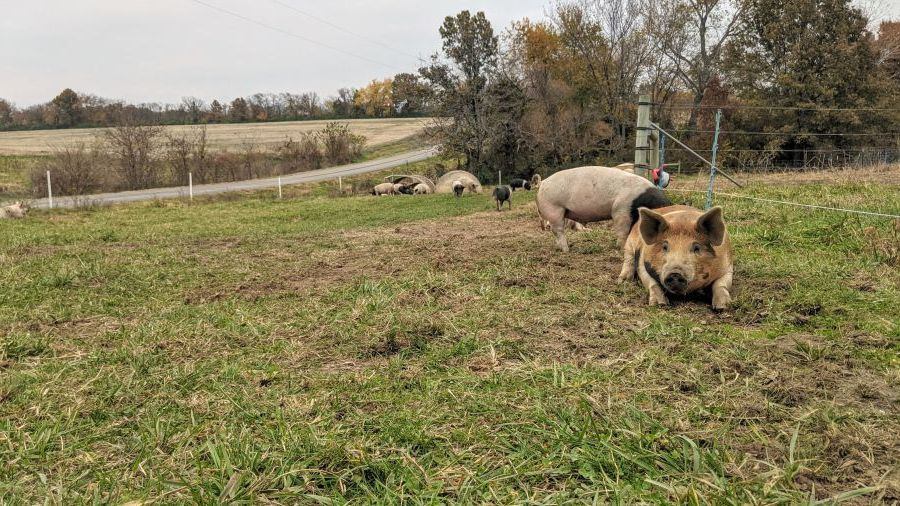CRISPR Technology Is Flying GMOs Under The Radar
posted on
January 17, 2024

As your farmers and trusted source for unadulterated, nutritious foods, we want to keep you informed about behind-the-scenes events in the food industry that may harm your health, environment, and economy.
One such event that caught my attention this week was in a post from Non-GMO Project about the USDA/APHIS decision to allow CRISPR genetically engineered crops to remain unregulated.
The companies developing these crops promote the belief that CRISPR gene-edited plants are non-GMO, but is that true? As CRISPR-edited foods hit store shelves, it's vital to understand what these are so that you can make educated shopping decisions for you and your family.
What is CRISPR?
CRISPR is a technology discovered in 2012 that allows the precise editing of an organism's DNA. It has mostly been researched as a way to cure human diseases such as sickle cell and cancer but is now being used in the agriculture industry. Plant scientists are implementing CRISPR to edit the traits of plants; removing undesirable traits (like the seeds in blackberries) and promoting the desirable ones (stronger flavors and colors.)
Some of the genetically engineered crops listed in the recent USDA/APHIS announcement include non-browning bananas, reduced-caffeine coffee, and dichlorophenoxyacetic acid (herbicide known as "2,4-D") resistant cereal crops.
What CRISPR-edited foods are already on the market?
CRISPR gene-edited foods on the market include tomatoes, grapes, wheat, soybeans, lettuce, and more. These foods have been gene-edited to make them more appealing to consumers and/or easier to produce.
One commercialized product, in particular, is Conscious Greens - a mustard green that has been CRISPR edited to change the coloring and taste and sold as a salad green mix. It has been available for nearly a year now and marketed as a "salad green developed to be more nutritious", although mustard greens already contain more nutrients than conventional salad greens.
There are dozens of CRISPR-edited foods being developed today that are not yet commercialized, but will soon be on the store shelf.
What are the problems with CRISPR gene-edited foods?
CRISPR technology is fairly new, and even more recently began being studied in agriculture. We don't yet know what the long-term effects of CRISPR gene editing have on our health and environment. But we have seen enough by this point in time to know that when man messes with the created order of nature, things always go wrong and end up costing us much more than the time or money saved by making such changes. Take existing GMOs for example, which have reduced palatability and nutrition, and an indirect effect on our health and planet through the additional chemical usage that they make possible.
Are CRISPR-edited foods GMOs?
According to the scientists and corporations promoting them, CRISPR-edited plants are not the same as GMO plants. They make the argument that GMOs are largely defined by the introduction of foreign DNA to an organism, whereas CRISPR involves editing only the native DNA of a plant. They claim that the mutations being made using CRISPR can be obtained through traditional selective plant breeding methods.
While it may be true that some of these CRISPR-developed traits may have been obtained through selective breeding, that doesn't negate the fact that CRISPR technology is still an unnatural manipulation of DNA, and one that has not yet been proven to be without its side effects. Scientists openly admit that the technology is not 100% accurate, sometimes resulting in the wrong section of DNA being affected.
Consider that when things adapt in creation, they are doing so slowly, as a whole, and in the environment in which they will continue, taking all things into account. Changing plant traits by manipulating DNA in a lab and then growing it in a controlled environment does not equate to the way changes happen in nature.
What can we do about CRISPR foods?
I'm discouraged by the USDA/APHIS decision to allow CRISPR plants to go unregulated and be treated differently than GMOs, but my hope is that by spreading the word about what this technology consumers can recognize it while shopping and choose to spend their food dollars wisely. The best way to take a stand is by not supporting it, and instead purchasing your food from farmers who are prioritizing your health and planet over their bottom line.
Does David's Pasture use CRISPR products?
At David's Pasture, we have taken a stand against GMOs since day one, and we will continue to take a stand against CRISPR technology being used in food production. If you have any questions about our practices you are always welcome to contact us.
In good eating,
Remi Kesten



